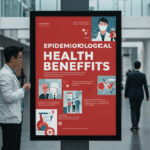In Europe, reimbursement decisions for drugs often include explicit consideration of cost effectiveness and a comparison of the efficacy of the new drug with products that are already available. In the US, such considerations are excluded, at least for Medicare, which is the biggest payer.
In Europe, reimbursement decisions for drugs often include explicit consideration of cost effectiveness and a comparison of the efficacy of the new drug with products that are already available. In the US, such considerations are excluded, at least for Medicare, which is the biggest payer. In the latest Health Affairs, Joshua Cohen, Ashley Malins and Zainab Shahpurwala conclude that the European approach leads to lower costs, better access to therapy for patients, and better outcomes –at least in some cases.
I asked Cohen –a senior research fellow at the Tufts Center for the Study of Drug Development– to comment on some of the findings.
Why did you base your research on patient access rather than market availability?
I’ve been studying patient access for over 10 years. I try to distinguish between key dimensions of patient access. Broadly, patient access is a function of: i. market availability (off-label uses are an exception to the rule); ii. coverage by payers; iii. patient out-of-pocket costs. Market availability captures one element of access. It is a necessary, but insufficient condition of access given that the vast majority of cancer drugs are paid for by third party payers.
From the patient standpoint, what are the advantages and disadvantages of the US v. European approaches?
The biggest advantage in the U.S. versus Europe with respect to cancer drugs is faster market availability of a greater number of drugs. Two rather stunning facts stood out: 1. None of the common subset of 29 drugs were approved in Europe before the U.S. And in most instances the lag was at least 4 months. 2. At the same time, for drugs licensed by the EMA and approved for reimbursement by the national health authorities there were hardly any out-of-pocket costs for patients in Europe. Contrast this with co-insurance percentages of as high as 40% for some drugs in the US. There are medications with annual price tags of over $20,000 –and 40 percent of $20,000 is a lot of money to shell out, especially for those on fixed incomes.
The comparative outcomes information you cite in the article is very old and excludes drugs approved since 2002. Why is this the case? Is there any way to look at more recent information?
The articles themselves are not old. They are recent publications (2009, 2010, 2011). However, if one looks carefully at the time period during which survival data were being measured it becomes clear that the newer vintage drugs were not included in the studies. Hence, one cannot conclude that better survival statistics for a number of cancers in the U.S. are due to better access to newer cancer drugs. Until we have data showing survival that can indeed be attributed to better access to newer drugs, we are left to speculate. My hunch is that better access in the U.S. to newer cancer drugs (i.e., faster and greater numbers of approvals, as well as fewer coverage restrictions) has been beneficial to some patients, as has improved screening and earlier diagnostic work-up.
In the timeframe you considered, 41 oncology drugs were introduced in the US but only 31 in Europe. Are there clinically significant products that make it to market in the US but not elsewhere? Can you provide an example?
Provenge (sipuleucel-T) comes to mind as a drug with a lot of fanfare in the U.S. It was approved in 2010 by the FDA, yet still not approved in Europe. At the same time, it should be said that there are certain differences in regulatory mechanisms that have benefited market uptake of a number of drugs in Europe, including Iressa (gefinitib). Iressa has led practically a moribund existence in the U.S., while in Europe, as a result of EMA approved of a companion diagnostic in 2009 – an EGFR mutation test kit – sales have increased steadily.
—–







